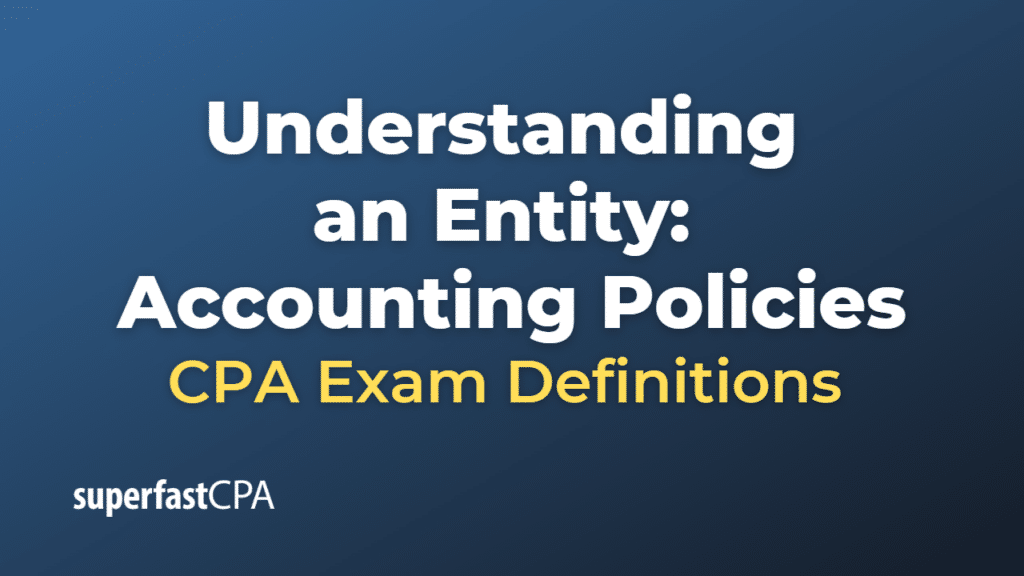Understanding an Entity: Accounting Policies
An entity’s selection of accounting policies defines the nature of the entity by providing the basis for the recognition, measurement, presentation, and disclosure of financial information in its financial statements. Accounting policies include the choice of accounting principles, methods, and estimates that management applies to specific transactions, events, or conditions. The selection of accounting policies can impact the risk of material misstatement in an entity’s financial statements in several ways:
- Complexity and subjectivity: Some accounting policies involve complex or subjective judgments, such as the choice of revenue recognition methods, estimates for allowances, or fair value measurements. The application of these policies can increase the risk of material misstatement due to errors, estimation uncertainties, or management bias.
- Aggressiveness or conservatism: Management may choose accounting policies that are more aggressive or conservative, depending on their financial reporting objectives and incentives. Aggressive accounting policies can result in the overstatement of assets, revenues, or earnings, while conservative policies can lead to the understatement of these items. The choice of aggressive or conservative policies can impact the risk of material misstatement by affecting the likelihood of errors or manipulation in the financial statements.
- Changes in accounting policies: Changes in accounting policies, whether due to new accounting standards or management decisions, can introduce additional risks and complexities to an entity’s financial reporting. The implementation of new policies can lead to errors or misinterpretations and increase the risk of material misstatement in the financial statements.
- Consistency and comparability: The consistent application of accounting policies over time and across entities is essential for providing meaningful and comparable financial information to users. Inconsistent or inappropriate application of accounting policies can impair the comparability and reliability of financial information, potentially increasing the risk of material misstatement.
- Disclosure quality: The selection of accounting policies also affects the quality of disclosures in the financial statements. Inadequate or incomplete disclosures regarding the entity’s accounting policies and their impact on the financial statements can reduce transparency and increase the risk of material misstatement.
When assessing the inherent risk of material misstatement during the planning and execution of an audit, auditors should consider the impact of an entity’s selection of accounting policies on its operations and financial reporting. Understanding the implications of the accounting policies can help auditors design appropriate audit procedures to address the risks associated with the entity’s accounting policy choices and provide reasonable assurance that the financial statements are free from material misstatement.













